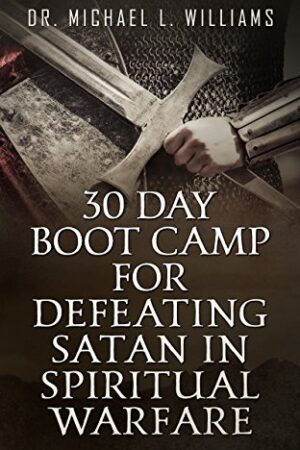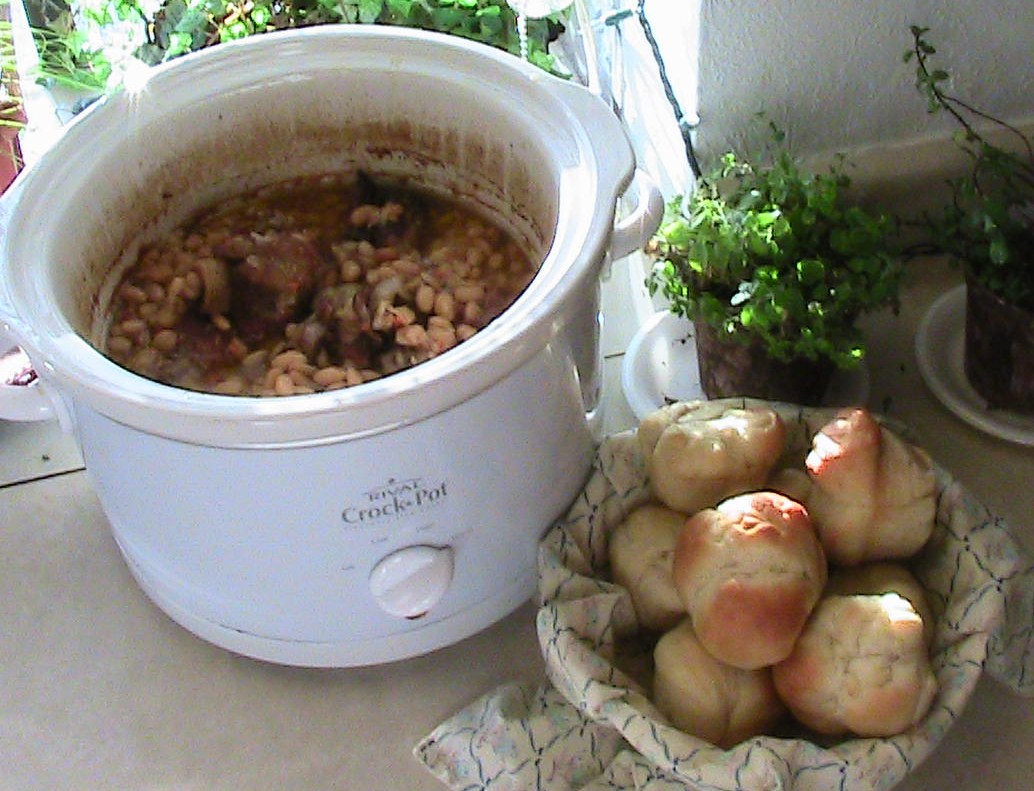It would be hard to find anyone that does not like to get together with friends. Whether it is a cookout, watching a favorite team, or celebration of a holiday, we enjoy sharing our lives with one another. Christians are no exception; we love to get together for fellowship. Likewise, if you ask most Christians what they define as fellowship, the responses are usually focused on getting together with others for an enjoyable activity. But, to know the real answer we need to ask what does the Bible say about fellowship.
The first thing that we need to look at is the definition of our English word fellowship. According to Webster’s 1828 dictionary the word fellowship has a primary definition as follows:
1. Companionship; society; consort; mutual association of persons on equal and friendly terms; familiar intercourse.
Although this is the primary definition, there are nine definitions listed, which describe fellowship as being more than just getting together for a good time. As Christians, when we think of fellowship, it is important to consider fellowship in light of what God says it means.
Obviously, since fellowship involves getting together with others, then we can understand that fellowship is based on something we have in common with other people. That being said, we can safely say that fellowship is based on having a common purpose. Psalms 133:1-3 gives us a good idea of the purpose of fellowship; to live with others in unity, which will result in blessings:
(Psalms 133:1-3 KJV) “A Song of degrees of David. Behold, how good and how pleasant it is for brethren to dwell together in unity! (2) It is like the precious ointment upon the head, that ran down upon the beard, even Aaron’s beard: that went down to the skirts of his garments; (3) As the dew of Hermon, and as the dew that descended upon the mountains of Zion: for there the LORD commanded the blessing, even life for evermore.”
If we are to live with others in unity, then we must consider that people who enjoy spending time with each other usually have common beliefs. Acts 2:42 described this as a unifying factor in the early church:
(Acts 2:42-44 KJV) “And they continued stedfastly in the apostles’ doctrine and fellowship, and in breaking of bread, and in prayers. (43) And fear came upon every soul: and many wonders and signs were done by the apostles. (44) And all that believed were together, and had all things common;”
Along with having a common belief and purpose, fellowship is demonstrated when people have a common conviction about things that should be done. 1 Peter 2:8 mentions how this common conviction plays out in the lives of those who have fellowship with one another:
(1 Peter 3:8-13 KJV) “Finally, be ye all of one mind, having compassion one of another, love as brethren, be pitiful, be courteous: (9) Not rendering evil for evil, or railing for railing: but contrariwise blessing; knowing that ye are thereunto called, that ye should inherit a blessing. (10) For he that will love life, and see good days, let him refrain his tongue from evil, and his lips that they speak no guile: (11) Let him eschew evil, and do good; let him seek peace, and ensue it. (12) For the eyes of the Lord are over the righteous, and his ears are open unto their prayers: but the face of the Lord is against them that do evil. (13) And who is he that will harm you, if ye be followers of that which is good?”
Here we see that those who are “of one mind” think alike in how they respect one another and how they place the needs of each other above their own. In other words, their behaviors are influenced in such a way that they become a blessing to one another, which pleases God. Likewise, we can also see that God takes our behaviors and attitudes toward each other very seriously in his interaction with those who do good and those who do evil (1 Peter 3:12).
When we share a common purpose and conviction because of our beliefs, then it affects our behaviors in other ways as well. We see it in our attitudes when it comes to working with others. Nehemiah 4 describes how the Jews responded in their fellowship and attitude toward work when persecuted by those who did not want them to rebuild the walls surrounding the city of Jerusalem.
(Nehemiah 4 KJV) “But it came to pass, that when Sanballat heard that we builded the wall, he was wroth, and took great indignation, and mocked the Jews. (2) And he spake before his brethren and the army of Samaria, and said, What do these feeble Jews? will they fortify themselves? will they sacrifice? will they make an end in a day? will they revive the stones out of the heaps of the rubbish which are burned? (3) Now Tobiah the Ammonite was by him, and he said, Even that which they build, if a fox go up, he shall even break down their stone wall. (4) Hear, O our God; for we are despised: and turn their reproach upon their own head, and give them for a prey in the land of captivity: (5) And cover not their iniquity, and let not their sin be blotted out from before thee: for they have provoked thee to anger before the builders. (6) So built we the wall; and all the wall was joined together unto the half thereof: for the people had a mind to work. (7) But it came to pass, that when Sanballat, and Tobiah, and the Arabians, and the Ammonites, and the Ashdodites, heard that the walls of Jerusalem were made up, and that the breaches began to be stopped, then they were very wroth, (8) And conspired all of them together to come and to fight against Jerusalem, and to hinder it. (9) Nevertheless we made our prayer unto our God, and set a watch against them day and night, because of them. (10) And Judah said, The strength of the bearers of burdens is decayed, and there is much rubbish; so that we are not able to build the wall. (11) And our adversaries said, They shall not know, neither see, till we come in the midst among them, and slay them, and cause the work to cease. (12) And it came to pass, that when the Jews which dwelt by them came, they said unto us ten times, From all places whence ye shall return unto us they will be upon you. (13) Therefore set I in the lower places behind the wall, and on the higher places, I even set the people after their families with their swords, their spears, and their bows. (14) And I looked, and rose up, and said unto the nobles, and to the rulers, and to the rest of the people, Be not ye afraid of them: remember the Lord, which is great and terrible, and fight for your brethren, your sons, and your daughters, your wives, and your houses. (15) And it came to pass, when our enemies heard that it was known unto us, and God had brought their counsel to nought, that we returned all of us to the wall, every one unto his work. (16) And it came to pass from that time forth, that the half of my servants wrought in the work, and the other half of them held both the spears, the shields, and the bows, and the habergeons; and the rulers were behind all the house of Judah. (17) They which builded on the wall, and they that bare burdens, with those that laded, every one with one of his hands wrought in the work, and with the other hand held a weapon. (18) For the builders, every one had his sword girded by his side, and so builded. And he that sounded the trumpet was by me. (19) And I said unto the nobles, and to the rulers, and to the rest of the people, The work is great and large, and we are separated upon the wall, one far from another. (20) In what place therefore ye hear the sound of the trumpet, resort ye thither unto us: our God shall fight for us. (21) So we laboured in the work: and half of them held the spears from the rising of the morning till the stars appeared. (22) Likewise at the same time said I unto the people, Let every one with his servant lodge within Jerusalem, that in the night they may be a guard to us, and labour on the day. (23) So neither I, nor my brethren, nor my servants, nor the men of the guard which followed me, none of us put off our clothes, saving that every one put them off for washing.”
The first thing that happened was that the Jews who were working on the wall were mocked by others for their efforts (Nehemiah 4:1-3). However, the Jews remained determined in their conviction, being of one mind, to continue with the work (Nehemiah 4:6). Likewise, being of one mind, they prayed that God would protect them while they continued the work (Nehemiah 4:9). They also encouraged one another not to be afraid of the rising opposition to their efforts (Nehemiah 4:14) and to focus on taking the steps necessary to be prepared for any escalations that might arise from the opposition. Finally, they intensified their efforts toward completing the work by moving into town so that they can be together (Nehemiah 4:22) and devote more time to working on the project without being interrupted except for the most basic of necessities like washing their clothes (Nehemiah 4:23).
Another factor to consider is how fellowship with others enables us to rejoice and encourage each other to have hope. We see this explained in Romans 12:10-13:
(Romans 12:10-13 KJV) “Be kindly affectioned one to another with brotherly love; in honour preferring one another; (11) Not slothful in business; fervent in spirit; serving the Lord; (12) Rejoicing in hope; patient in tribulation; continuing instant in prayer; (13) Distributing to the necessity of saints; given to hospitality.”
Notice that when we have fellowship it should demonstrate itself in our attitudes toward each other, our business, our drive, our patience, our prayers, and our desire to help others. Likewise, when we do not have fellowship, it has an adverse effect on our hope as seen in Ephesians 2:12:
(Ephesians 2:12 KJV) “That at that time ye were without Christ, being aliens from the commonwealth of Israel, and strangers from the covenants of promise, having no hope, and without God in the world:”
Here we see that lack of fellowship alienates having things in common with other people and makes us uninformed about the promises of God, which crushes our hopes, because we are not engaged with Godly things in the world. A demonstration of this is found in 1 Samuel 20:41-42, which tells of a time when David was on the run from King Saul who wanted to kill him. Jonathan, Saul’s son and David’s closest friend, met with him in the wilderness and the brief time of fellowship cheered David up and gave him hope.
(1 Samuel 20:41-42 KJV) “And as soon as the lad was gone, David arose out of a place toward the south, and fell on his face to the ground, and bowed himself three times: and they kissed one another, and wept one with another, until David exceeded. (42) And Jonathan said to David, Go in peace, forasmuch as we have sworn both of us in the name of the LORD, saying, The LORD be between me and thee, and between my seed and thy seed for ever. And he arose and departed: and Jonathan went into the city.”
Another thing to consider when it comes to fellowship is how fellowship can make suffering bearable. We see this in the account of Shadrach, Meshach, and Abednego, who were cast into a furnace for refusing to worship a false god.
(Daniel 3:14-28 KJV) “Nebuchadnezzar spake and said unto them, Is it true, O Shadrach, Meshach, and Abednego, do not ye serve my gods, nor worship the golden image which I have set up? (15) Now if ye be ready that at what time ye hear the sound of the cornet, flute, harp, sackbut, psaltery, and dulcimer, and all kinds of music, ye fall down and worship the image which I have made; well: but if ye worship not, ye shall be cast the same hour into the midst of a burning fiery furnace; and who is that God that shall deliver you out of my hands? (16) Shadrach, Meshach, and Abednego, answered and said to the king, O Nebuchadnezzar, we are not careful to answer thee in this matter. (17) If it be so, our God whom we serve is able to deliver us from the burning fiery furnace, and he will deliver us out of thine hand, O king. (18) But if not, be it known unto thee, O king, that we will not serve thy gods, nor worship the golden image which thou hast set up. (19) Then was Nebuchadnezzar full of fury, and the form of his visage was changed against Shadrach, Meshach, and Abednego: therefore he spake, and commanded that they should heat the furnace one seven times more than it was wont to be heated. (20) And he commanded the most mighty men that were in his army to bind Shadrach, Meshach, and Abednego, and to cast them into the burning fiery furnace. (21) Then these men were bound in their coats, their hosen, and their hats, and their other garments, and were cast into the midst of the burning fiery furnace. (22) Therefore because the king’s commandment was urgent, and the furnace exceeding hot, the flame of the fire slew those men that took up Shadrach, Meshach, and Abednego. (23) And these three men, Shadrach, Meshach, and Abednego, fell down bound into the midst of the burning fiery furnace. (24) Then Nebuchadnezzar the king was astonied, and rose up in haste, and spake, and said unto his counsellors, Did not we cast three men bound into the midst of the fire? They answered and said unto the king, True, O king. (25) He answered and said, Lo, I see four men loose, walking in the midst of the fire, and they have no hurt; and the form of the fourth is like the Son of God. (26) Then Nebuchadnezzar came near to the mouth of the burning fiery furnace, and spake, and said, Shadrach, Meshach, and Abednego, ye servants of the most high God, come forth, and come hither. Then Shadrach, Meshach, and Abednego, came forth of the midst of the fire. (27) And the princes, governors, and captains, and the king’s counsellors, being gathered together, saw these men, upon whose bodies the fire had no power, nor was an hair of their head singed, neither were their coats changed, nor the smell of fire had passed on them. (28) Then Nebuchadnezzar spake, and said, Blessed be the God of Shadrach, Meshach, and Abednego, who hath sent his angel, and delivered his servants that trusted in him, and have changed the king’s word, and yielded their bodies, that they might not serve nor worship any god, except their own God.”
Here we see that Shadrach, Meshach, and Abednego, known as Hananiah, Mishael and Azariah before being renamed by their captors, refused to worship the false gods of the king. The king then decided that they would be thrown into a furnace. After they were thrown in, the king noticed that they did not perish, but in fact were walking around in the intense fire. However, the king also noticed that there were not just three, but four men walking in the furnace and the fourth one, according to the king, looked like the “Son of God.” The king then ordered Shadrach, Meshach, and Abednego to come out of the furnace. When they came out the king noticed they had no evidence of being in the furnace on them. Because of this miracle, the king praised the true God.
Although few people go through any stressful time like these three, the fact that they went through it together is a testimony of how sometimes fellowship involves going through extreme trials of our faith. Having other brothers or sisters in Christ alongside of us when these trials come help us to endure such times and often results in us being able to accomplish amazing things.
With this in mind, we can better understand the many stories of prisoners of war, who, when suffering extreme cruelty at the hand of their captors, turned to their faith in God to get them through their darkest hours. When they could not physically be in the same room, they sometimes went as far to tap out Morse Code messages of encouragement to one another. When they did not have Bibles, they often quoted verses they remembered. Many times, they sang their favorite hymns, despite the objections of the guards. The point is, that when they shared these terrible experiences, their fellowship, according to most accounts is what was instrumental in their survival.
Although fellowship involves people, the Bible tells us that fellowship form a Christian perspective also involves God.
(1 John 1:1-7 KJV) “That which was from the beginning, which we have heard, which we have seen with our eyes, which we have looked upon, and our hands have handled, of the Word of life; (2) (For the life was manifested, and we have seen it, and bear witness, and show unto you that eternal life, which was with the Father, and was manifested unto us; ) (3) That which we have seen and heard declare we unto you, that ye also may have fellowship with us: and truly our fellowship is with the Father, and with his Son Jesus Christ. (4) And these things write we unto you, that your joy may be full. (5) This then is the message which we have heard of him, and declare unto you, that God is light, and in him is no darkness at all. (6) If we say that we have fellowship with him, and walk in darkness, we lie, and do not the truth: (7) But if we walk in the light, as he is in the light, we have fellowship one with another, and the blood of Jesus Christ his Son cleanseth us from all sin.”
Notice that there are certain things that make up Christian fellowship. The first is that Christians have “seen and heard” the truth of eternal life through Christ and actively share it with others so they can have fellowship with them (1 John 1:2-3) and so that they will have joy (1 John 1:4). Therefore, Christian fellowship is based on the truth of salvation through Christ.
Sadly, many who profess to be Christians arrange to have “fellowship dinners” or other events where they invite non-Christians to participate, however, during the course of the event, no clear presentation of the gospel is given. Many times, when those who are responsible for arranging the event are asked to present the clear gospel, they turn down the request stating that they do not want to offend anyone. This then makes one wonder what kind of a “fellowship” they have if they were not willing to share God with those in attendance. What have they really accomplished in their “fellowship” other showing a bunch of non-believers a good time? Unfortunately, when it is all over, the non-believers may have full bellies, but they are still on their way to Hell. If those who arranged the fellowship are afraid of offending someone with the Gospel of salvation, just imagine how offended the person will be when they stand before God and they try to explain why they did not believe because they thought going to a fellowship dinner would make them right with God.
Second, as those having fellowship strive to live their lives in such a way that honors God, they have fellowship with the Father, and with his Son Jesus Christ, and with the Holy Spirit (1 John 1:3; 1 Corinthians 1:9-10; Philippians 2:1). Likewise, when those in fellowship do not strive to live their lives in such a way that honors God, then they are not part of a fellowship with one another or God (1 John 1:6-7). This is true because as believers, we are told not to have fellowship with those who willfully reject living in a way that pleases God (Proverbs 1:10-16; Matthew 18: 15-20; Romans 16:17; 2 Corinthians 6:14-18; Ephesians 4:17-24; Ephesians 5:6-11; Philippians 3:15-19; 2 Thessalonians 3:11-15).
In addition to those involved in a fellowship sharing their lives with one another, those in a fellowship also share other things with one another. The first would be material possessions as seen in Acts 2:44-45 and 2 Corinthians 8:1-5 as follows:
(Acts 2:44-45 KJV) “And all that believed were together, and had all things common; (45) And sold their possessions and goods, and parted them to all men, as every man had need.”
(2 Corinthians 8:1-5 KJV) “Moreover, brethren, we do you to wit of the grace of God bestowed on the churches of Macedonia; (2) How that in a great trial of affliction the abundance of their joy and their deep poverty abounded unto the riches of their liberality. (3) For to their power, I bear record, yea, and beyond their power they were willing of themselves; (4) Praying us with much entreaty that we would receive the gift, and take upon us the fellowship of the ministering to the saints. (5) And this they did, not as we hoped, but first gave their own selves to the Lord, and unto us by the will of God.”
It is clear here that those in fellowship shared their material possessions and financial support with those who needed it. Likewise, we see that they also shared in the work of “ministering to the saints,” which means serving the believers. This is noteworthy because they “first gave of themselves to the Lord” (2 Corinthians 8:5). Giving of themselves to the Lord means that they adopted an attitude of serving God, which then led to them serving others. As mentioned previously, when someone holds a fellowship event and does not share a clear presentation of the Gospel with those in attendance, it makes one wonder if those holding the event have ever given themselves to the Lord.
This brings up the final point. Fellowship should always have the goal of bringing others together so that they can ultimately be part of the effort to share the Gospel.
(Galatians 2:9-10 KJV) “And when James, Cephas, and John, who seemed to be pillars, perceived the grace that was given unto me, they gave to me and Barnabas the right hands of fellowship; that we should go unto the heathen, and they unto the circumcision. (10) Only they would that we should remember the poor; the same which I also was forward to do.”
(Philippians 1:2-6 KJV) “Grace be unto you, and peace, from God our Father, and from the Lord Jesus Christ. (3) I thank my God upon every remembrance of you, (4) Always in every prayer of mine for you all making request with joy, (5) For your fellowship in the gospel from the first day until now; (6) Being confident of this very thing, that he which hath begun a good work in you will perform it until the day of Jesus Christ:”
Unfortunately, when it comes to fellowship that involves food or recreational events, many people are happy to participate. However, when invited to have fellowship that involves going out and sharing the gospel door to door or at public events such as holiday parades, fairs, etc., most people are nowhere to be found. It is a sad state of affairs that anyone who would claim to be a Christian, will avoid fellowship that has eternal value.
In consideration of this point, those who are part of a fellowship that seeks to share the Gospel are blessed with more than just sharing time with one another as seen in Ephesians 3:4-19.
(Ephesians 3:4-19 KJV) “Whereby, when ye read, ye may understand my knowledge in the mystery of Christ) (5) Which in other ages was not made known unto the sons of men, as it is now revealed unto his holy apostles and prophets by the Spirit; (6) That the Gentiles should be fellowheirs, and of the same body, and partakers of his promise in Christ by the gospel: (7) Whereof I was made a minister, according to the gift of the grace of God given unto me by the effectual working of his power. (8) Unto me, who am less than the least of all saints, is this grace given, that I should preach among the Gentiles the unsearchable riches of Christ; (9) And to make all men see what is the fellowship of the mystery, which from the beginning of the world hath been hid in God, who created all things by Jesus Christ: (10) To the intent that now unto the principalities and powers in heavenly places might be known by the church the manifold wisdom of God, (11) According to the eternal purpose which he purposed in Christ Jesus our Lord: (12) In whom we have boldness and access with confidence by the faith of him. (13) Wherefore I desire that ye faint not at my tribulations for you, which is your glory. (14) For this cause I bow my knees unto the Father of our Lord Jesus Christ, (15) Of whom the whole family in heaven and earth is named, (16) That he would grant you, according to the riches of his glory, to be strengthened with might by his Spirit in the inner man; (17) That Christ may dwell in your hearts by faith; that ye, being rooted and grounded in love, (18) May be able to comprehend with all saints what is the breadth, and length, and depth, and height; (19) And to know the love of Christ, which passeth knowledge, that ye might be filled with all the fulness of God.”
We see from these verses that those who are part of a Gospel sharing fellowship, are blessed in nine ways:
- Knowing firsthand the mystery of Christ (Ephesians 3:4)
- The power of Christ (Ephesians 3:7)
- The boldness to preach Christ (Ephesians 3:8)
- The fellowship of knowing the deep things of Christ (Ephesians 3:9)
- The wisdom of Christ (Ephesians 3:10)
- The knowledge of their purpose as found in Christ (Ephesians 3:11-12)
- Strength in tribulations through Christ (Ephesians 3:13-16)
- The love of Christ (Ephesians 3:17-18)
- The fullness of Christ (Ephesians 3:19)
When considering everything that the Bible says about fellowship, we can see that God’s idea of fellowship far exceeds the idea of just fellowship dinners or special events. It involves sharing with others everything that makes up our physical, emotional, and Spiritual being as it relates to God and one another. When people experience fellowship on that level, amazing things can happen.
























